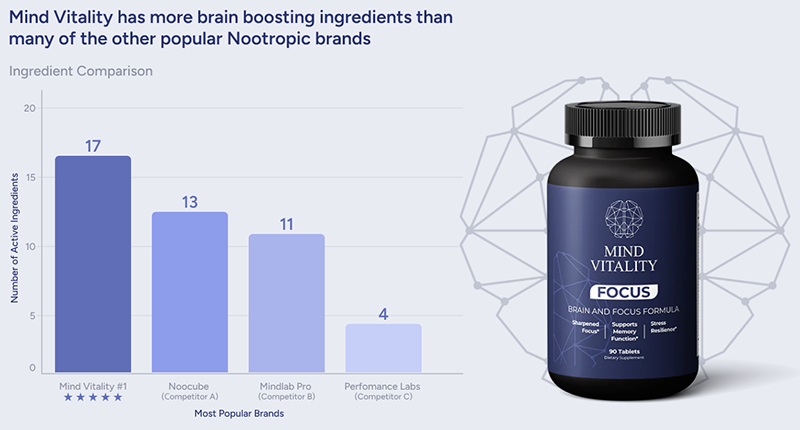
In a world where the average lifespan continues to extend, understanding the secrets behind healthy aging has never been more critical. Among the most fascinating subjects in this realm are centenarians – those remarkable individuals who have lived to or beyond the age of 100. But it’s not just their longevity that intrigues scientists and laypeople alike; it’s their often-observed resistance to cognitive decline. This phenomenon, known as cognitive resilience, offers a window into how some people maintain mental sharpness and brain health well into their later years.
Contents
Understanding Centenarians
Before diving into the intricacies of cognitive resilience, it’s essential to understand who centenarians are. This segment of the population, though small, offers invaluable insights into aging and cognitive health. In this section, we will explore the characteristics that define centenarians, their demographics, and why they are significant in the field of cognitive health research.
Who are Centenarians?
Centenarians are individuals who have reached the remarkable milestone of 100 years of age or more. This remarkable achievement is not merely a function of time but a complex interplay of genetics, lifestyle, environment, and perhaps a bit of fortune. While reaching 100 is an impressive feat, what makes centenarians a focus for cognitive health research is their varied experiences of aging, particularly in how their brains have remained resilient against the typical decline seen in others.
Demographic and Health Characteristics of Centenarians
Globally, the number of centenarians is rising, with varying concentrations in different regions. These individuals often share certain demographic and health characteristics, such as a prevalence of women over men and a tendency to have delayed or escaped the major age-related diseases. Interestingly, many centenarians exhibit a phenomenon known as “compression of morbidity,” where significant illnesses and disabilities appear much later in life, allowing for a more extended period of good health and active living.
Significance of Centenariansin Cognitive Health Research
Centenarians are vital to cognitive health research for several reasons. Firstly, they represent a model of successful aging, often maintaining their cognitive abilities well beyond the average lifespan. Studying their lifestyle, genetics, and environmental factors provides clues about mitigating cognitive decline. Additionally, understanding how centenarians have managed to avoid or delay dementia and other cognitive impairments could inform strategies for cognitive health maintenance and dementia prevention in the general population [1].
Cognitive Decline: A Brief Overview
To fully appreciate the significance of cognitive resilience in centenarians, it is crucial to understand cognitive decline, a common concern associated with aging. Cognitive decline varies greatly in its extent and impact, affecting individuals differently.
Definition and Causes of Cognitive Decline
Cognitive decline refers to the gradual deterioration of cognitive functions such as memory, thinking, and reasoning skills. This decline can be part of the normal aging process, known as age-associated memory impairment, or it can be more severe, leading to conditions like dementia. Several factors contribute to cognitive decline, including aging, genetic predisposition, environmental factors, lifestyle choices, and underlying health conditions such as cardiovascular diseases or diabetes.
Common Symptoms and Progression of Cognitive Decline
The symptoms and progression of cognitive decline can vary. Early signs often include forgetfulness, difficulty concentrating, and challenges in making decisions or planning. As cognitive decline progresses, these symptoms can become more pronounced, affecting daily activities and independence. In severe cases, such as in dementia, individuals may experience significant memory loss, personality changes, and difficulties in communication.
Impact of Cognitive Decline on Quality of Life
Cognitive decline can significantly impact an individual’s quality of life. It affects not only the person experiencing it but also their caregivers and family members. Challenges include the loss of independence, increased reliance on others, and emotional impacts such as frustration, stress, and reduced self-esteem. Understanding these impacts is crucial for developing effective support systems and interventions [2].

Factors Contributing to Cognitive Resilience in Centenarians
Having explored what cognitive decline entails, it becomes even more remarkable to consider the centenarians who demonstrate cognitive resilience. This resilience is not a product of chance but rather the result of a variety of factors.
Genetic Factors
Genetics play a significant role in the cognitive resilience of centenarians. Research has shown that many centenarians possess genetic variations that may protect against cognitive decline. These genetic factors could influence brain structure and function, reduce the risk of neurodegenerative diseases, or enhance the ability to repair and maintain neural cells. Understanding these genetic aspects is crucial in unraveling the secrets of cognitive resilience.
Lifestyle Choices
Lifestyle choices are pivotal in influencing cognitive health, and this is particularly evident in centenarians.
Diet and Nutrition
Many centenarians follow diets rich in fruits, vegetables, whole grains, and lean proteins, with limited intake of processed foods and sugars. Diets such as the Mediterranean diet, which is high in antioxidants and healthy fats, have been associated with reduced risk of cognitive decline.
Physical Activity
Regular physical activity is another common characteristic among centenarians. Exercise not only benefits physical health but also contributes to cognitive health by enhancing blood flow to the brain, reducing inflammation, and potentially stimulating the growth of new brain cells.
Social Engagement
Active social lives and strong community ties are prevalent among centenarians. Social interaction is beneficial for mental health, providing emotional support, reducing stress, and potentially stimulating cognitive functions through varied conversations and activities [3].
Psychological Aspects
The psychological mindset of centenarians also contributes significantly to their cognitive resilience.
Mental Agility
Many centenarians engage in activities that challenge their minds, such as puzzles, reading, and hobbies that require cognitive engagement. This continuous mental stimulation may help maintain cognitive functions.
Positive Attitude and Coping Mechanisms
Centenarians often exhibit a positive outlook on life and effective coping mechanisms. Resilience in the face of life’s challenges, a sense of purpose, and a positive attitude towards aging are psychological traits that contribute to their overall mental well-being.

Case Studies and Research Findings Involving Cognitive Resilience in Centenarians
The exploration of cognitive resilience in centenarians is not complete without examining real-world examples and research findings. These case studies and scientific investigations provide tangible evidence of the factors contributing to cognitive resilience and offer inspiration and insights that can be applied more broadly.
Notable Studies on Centenarians
Several landmark studies have been conducted on centenarians, each shedding light on different aspects of their cognitive health.
The New England Centenarian Study
One of the most extensive studies of its kind, this research focuses on the genetic and environmental factors that contribute to the longevity and health of centenarians. Key findings include the importance of genetics in lifespan and the observation that many centenarians have delayed or escaped age-related diseases [4].
The Okinawa Centenarian Study
This study focuses on centenarians living in Okinawa, Japan, known for its high number of long-lived individuals. It highlights the role of diet, particularly a low-calorie, nutrient-rich diet, in promoting longevity and cognitive health.
The 90+ Study
Although focusing on nonagenarians (people in their 90s), this study offers valuable insights applicable to centenarians. It examines lifestyle factors, medical history, and cognitive function, revealing that physical activity and moderate alcohol consumption are associated with longevity [5].
Key Findings on Cognitive Resilience
Research findings consistently emphasize several key elements in the cognitive resilience of centenarians.
Genetic predisposition
Certain genetic factors appear to protect against the typical cognitive decline associated with aging.
Healthy lifestyle
A balanced diet, regular physical activity, and active social engagement are crucial in maintaining cognitive health.
Mental stimulation
Continuous engagement in mentally stimulating activities helps keep the brain active and resilient.
Real-life Examples and Testimonials
Beyond the data, the stories of individual centenarians bring the concept of cognitive resilience to life. For instance, a centenarian who actively participates in community events, continues to pursue hobbies like gardening or painting, and maintains a healthy lifestyle offers a living example of the principles uncovered in research.
The insights gained from these case studies and research findings not only highlight the remarkable capabilities of centenarians but also serve as a guide for strategies to maintain cognitive health throughout the aging process.
References
[1] Cognitive Trajectories and Resilience in Centenarians—Findings From the 100-Plus Study
[2] Centenarians as Models of Resistance and Resilience to Alzheimer’s Disease and Related Dementias
[3] Resilience and longevity: Expert survivorship of centenarians
[4] Cognition, function, and prevalent dementia in centenarians and near-centenarians
[5] Super Agers and Centenarians: The Search for Protective Factors

